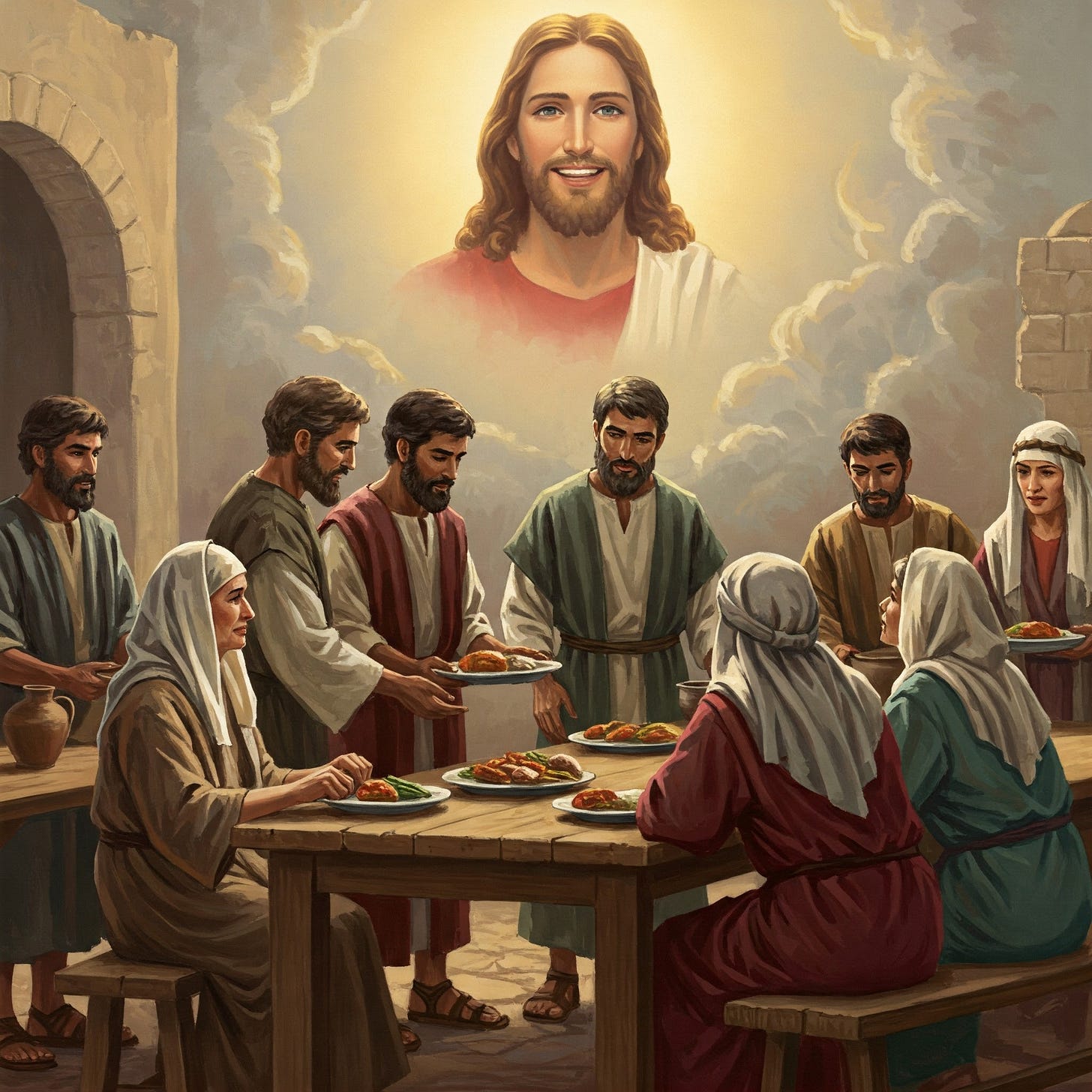A Multi-Faceted Ministry
5/9/25 Bible Thought (Acts 6)
In the first few chapters of Acts, it seems that everything is going smoothly. The church might have some opposition from without, but there aren’t any problems within. The church is growing day by day, more people are responding to the gospel, and at this point it seems everyone is getting along!
Then comes Acts 6, and the problem is: well…food.
Every day the church is helping to provide for the material needs of widows, and the Hellenists (Greek-speaking) are being neglected in the daily food distribution. So, a complaint is brought against the Hebrew portion of the church.
This is a seemingly small problem, but it had the potential to be seriously besetting to the church and it ended up involving the apostles. The ones who were preaching, working miracles, and doing the work of spreading the gospel were suddenly caught up in what might seem to be an entirely natural matter.
However, as Luke records this dilemma, the need isn’t described as something menial. Indeed, the qualifications for the men to meet this need were to be of a good reputation, to be full of the Holy Spirit, and full of wisdom (Acts 6:3). It doesn’t sound to me like it was lowly esteemed at all! In their mind, you need the Spirit of God to wait on a widow’s table, how amazing is that?!
The significance of this work is further shown as Luke describes the widows as being neglected in the daily distribution.
What is fascinating here is that the Greek word underlying distribution is diakonia which is frequently translated either as service or ministry. This word is the same word the apostles use in verse four to refer to the, “ministry (diakonia) of the word” (Acts 6:4). Not only this, when they’re looking to assign men to fulfill the role of waiting on tables, they refer to it as “serving” (diakoneo) tables—this is a verbal form of the same word.
What Luke shows us here that is so powerful is that ministry is a multi-faceted thing. Ministry, service to God, not only comes in the apostles preaching, teaching, and prayers—it also comes in the humble service of taking food to widows!
Truly, anything done for the service of others and the glory of God is a form of ministry! Ministry isn’t reserved for those in leadership positions. It isn’t reserved for those whose names are known by the entire congregation. In fact, ministry isn’t reserved for anyone in particular—rather, the opportunity is offered for everyone to be a part.
The world’s standard is one of climbing the ladder and those who are at the top are the important ones, but in the Kingdom of God each rung is significant. Each and every person on every rung serving in every capacity is valuable and they matter to God, and so does their work.
The apostle Paul likens the church to a body, and concludes,
“For just as the body is one and has many members, and all the members of the body, though many, are one body, so it is with Christ” (1 Cor. 12:12).
Everyone has their unique, God-given contribution to make. Each has a gift that is given for the service of others and the glory of God (1 Pet. 4:10-11).
It might not be flashy. It might not even be known or noticed by others. But if it’s done for the people of God and the glory of God then it is ministry just the same and it matters. It matters to the functioning of the whole body, and it matters to God.



ok, but who's the guy in the clouds?